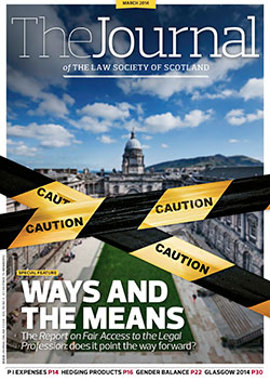Reading for pleasure
Girt: the unauthorised history of Australia
David Hunt (Black Inc: £18.47; e-book £8.07)
In commenting on Australian history, Mark Twain wrote: "It does not read like history, but like the most beautiful lies... but they are all true, they all happened." This is a well researched, well written book, with an exemplary light touch, telling the history of Australia.
It is also very amusing, bordering on the irreverent. For example: "It is 29 April 1770 and captain James Cook... strides across the deck of HMS Endeavour while his pet botanist, Joseph Banks, scurries in his wake withering on about seed pods. But Cook only has ears for the siren song of the land that lies spread out before him... at Botany Bay he will name her and claim her for God, King and Great Britain. This is, of course, complete nonsense... He arrived between 60,000 and 164 years too late to discover Australia."
Of those who had seen Australia's "boundless plains", Hunt writes "The general consensus was Australia was sandy, boring and full of hostile savages who weren't interested in buying tea." This is but a flavour of what follows, as Hunt dissembles and considers the history of this vast, diverse country. This is a must for anyone travelling to Australia, thinking about visiting, or who just enjoys a good chuckle.
You Aren't What You Eat
Steven Poole (Union Books: £5.75; e-book £5.46)
“A feisty and inflammatory little book”, is how one critic described it. No less a personage than the estimable Jonathan Meades said it was “brilliantly and consistently and winningly funny”.
What we are given (perhaps not before time) is someone to suggest we call a halt to the cult of food. In an age where more food books and more TV programmes on the subject seem to have resulted in a huge rise in our consumption of ready meals, this may well be no bad thing.
Steven Poole’s work is thorough and well researched. The bibliography (or bibliophagy, as it is curiously named – the word does not feature in the Complete Oxford Dictionary) and notes extend to 20 pages, one tenth of its total. It is well written; however the 173 pages of actual text represent one of the longest expositions of one single point, namely that we in the 21st century place too much store on food matters.
This is a long ride on a one trick pony. Feisty (and polished) it undoubtedly is; funny, sadly, it ain’t. Consuming this work did not much aid my digestion.
Baksheesh
Esmahan Aykol (Bitter Lemon Press: £8.99; e-book £7.28)
When reading a book prior to reviewing it, I try to avoid the cover notes. (Even more importantly, I avoid reviews of crime books in The Scotsman – the endings of the last two good novels I read were revealed by reviewers who should be summarily removed, shot and replaced by my good self.) For that reason, it came as some surprise to me to read ex post facto that this was the second Kati Hirschel Istanbul mystery. A surprise, since she doesn’t particular come across as any type of sleuth. For much of the book, I really wasn’t particularly aware that she was investigating, as opposed to having been sucked in. But by the end our heroine is not only the central character in, but also the eventual solver of, an amiable murder mystery (if such a thing be possible). Her professional and private life blends into the investigations, but in conjunction with her friend the investigating officer.
Kati is a German well assimilated into Istanbul. Her father may or may not have been the German Minister for the Interior. Her many asides about Turkish character traits entertain, though I cannot comment on their accuracy. The book has as many meanderings as there are to be found in Istanbul’s back streets. She is a most unlikely central figure for a crime novel. The pace may be a little slow for some. Even reading at my usual breakneck pace I found the plot details a little difficult to retain; however, I found Kati to be a most genial companion, and would be more than happy to be reacquainted with her.
In this issue
- The role of "attachment" in child custody and contact cases
- No protocol – what expenses?
- Ecocide: a worthy "fifth crime against peace"?
- Mandatory mediation: better for children
- Reservoir safety regulation: a changing landscape
- Reading for pleasure
- Opinion: Mark Hordern
- Book reviews
- Profile
- President's column
- Digital deeds move closer
- Fair access - a fair way to go
- No protocol – what expenses? (1)
- Hedges: not all bad news
- Daring to be different
- Financial planning or wealth management – is there a difference?
- Success in the balance
- Wealth management for business leaders and owners
- Purpose of the protocol
- Actionable data wrongs?
- Land Court: business as usual
- Penalty points
- Scottish Solicitors' Discipline Tribunal
- Fever pitch
- Heritage regained
- All grist to the mill
- Wills: is it OK to act?
- Gongs, dinners and just deserts
- Perils of the home
- Ask Ash
- Scots lawyers debate Union in London
- Public Guardian news roundup
- Law reform roundup
- Personal Injury User Group at your service
- Diary of an innocent in-houser






